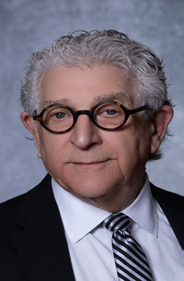Guest Opinion
Nebraska legislators spent much of their recent session debating and parsing the political landscape in two primary areas: the will of the people via the ballot box and the ongoing culture wars, those nitpicky, divisive punch ups, which often cleave communities.
That focus last session was the subject of an excellent article by the Nebraska Examiner.
While he meticulously detailed the body’s battles over issues ranging from taxes to school books to whether your cheeseburger came from a petri dish or a pasture, most troubling was the inordinate amount of time senators spent on what can only be described as undoing the will of the people. By the end, the majority had watered down, thinned or undermined initiatives already approved by voters regarding paid sick leave, medical cannabis and minimum wage, the latter, while not passing muster this past session, is sure to be debated again next year.
Governing by ballot initiative is a tedious, meandering process, often exacerbated by lengthy campaigns to gather petition signatures and court filings disputing everything from language to intent. Nevertheless, that’s our way of doing things.
Yes, democracy isn’t easy. Nor is it quick. Ergo, I understand and respect — sometimes grudgingly — once the votes have been counted, game over. For example, after railing in a number of commentaries about how a lie led to a petition that resulted in Nebraska now requiring photo IDs to vote, I dutifully had my driver’s license ready to mark my X when the time came.
True, the Legislature is charged with putting flesh on the bones of passed initiatives. But weakening them in any way truly is at odds with the people’s will. In our system, “Put it to a vote” both poses the question and has the expectation that we follow the answer … even when we vehemently disagree with the result. (See your local civics class for details. Wait, do we still teach that?)
Politics is the mechanism by which we practice these principles of democracy. At its core is the art of creating and selling an idea, one the majority of those affected believe will better their or their neighbors’ lives. We call voting our civic duty. Even so, having the decision subverted or enfeebled by another elected body should be a non-starter in a democratic republic.
That said, if an initiative that passes turns out to be a real stinker or constitutionally challenged, the separation of powers can reign in or block such nonsense going forward. Legislators know that and should act accordingly.
George Ayoub is a journalist who has written columns, editorials and features for the Grand Island Independent.

.jpg)








